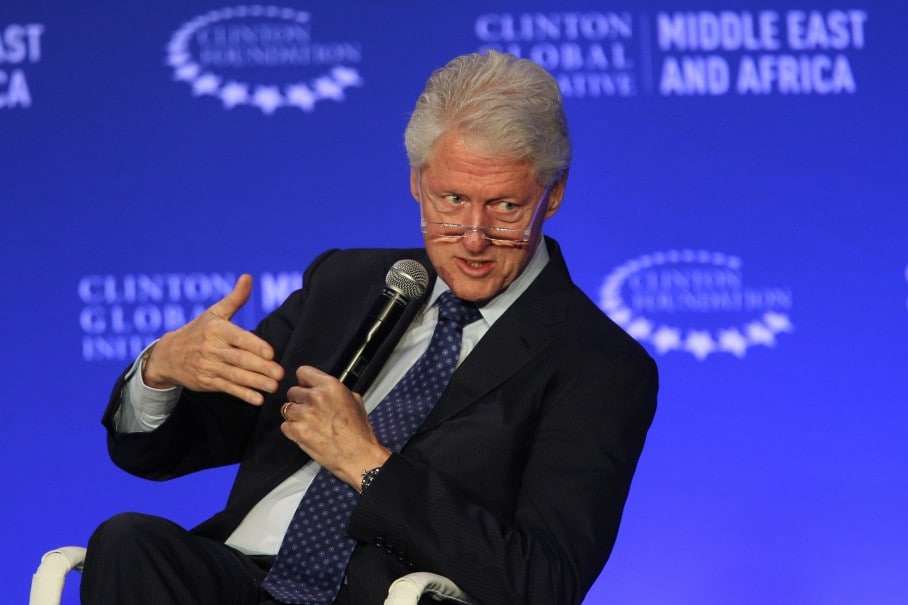The Volokh Conspiracy
Mostly law professors | Sometimes contrarian | Often libertarian | Always independent
Which political leader expressed concern about California universities 'fill[ing] their entire freshman classes with nothing but Asian Americans'?

The answer is President Bill Clinton, in 1995, when Prop. 209 was being discussed in California. Prop. 209, which was enacted the following year, banned race and sex preferences in public education, employment, and contracting. From Leon Rennert [Bee Washington Bureau Chief], Sacramento Bee, April 7, 1995, at A1 (quoting an exclusive interview with The Bee):
"Our diversity is our great strength," [President Clinton] declared. "If a university says, 'Look, we're only going to let in qualified people, but we think that the life of the university will be strengthened if we had different kinds of people,' then I think that's a legitimate thing."
Otherwise, he added, "there are universities in California that could fill their entire freshman classes with nothing but Asian Americans."
I was reminded of this by the news about Asian-American groups filing a complaint with the Justice Department and the Department of Education, claiming that Harvard is discriminating against Asians in admissions (and discriminating against them in favor of whites, not just engaging in the more familiar preferential treatment of black and Hispanic applicants). I don't know whether the factual allegations against Harvard are correct - but if some people are shocked to imagine that Harvard would do such a thing, it's worth noting how well such discrimination fits in the overall rhetoric of "diversity" and "campuses that look like America," and how openly some liberal leaders have expressed concerns about race-neutral admissions leading to "too many Asians."
Likewise, here's a quote from Aug. 10, 1995, from Richard Der, executive director of Chinese for Affirmative Action, arguing that Asians should support race-based university admissions preferences:
If Asian-Americans want to go to segregated schools where students are mostly Asian, then they should enroll in universities in Asia.
And here's liberal CNN's "Crossfire" co-host Bob Beckel, questioning Abigail Thernstrom (an opponent of race preferences in university admissions) on May 25, 1997:
You just mentioned Asians - let's assume for a moment - who are doing much better in their scoring than average than even whites are. If merit - this things, merit, which is most grades and tests are what is used here, would you like to see these UCLA Law School 80 percent Asian? Because at the rate it is going, let me just give you the percentages. The rate it's going, an increase of 80 students by the year 2007, 80 percent of the UCLA Law School will be Asian. Will that make you happy?
Now both of these quotes are somewhat hyperbolic - though universities of course could fill their freshman classes with Asian Americans, race-blind admissions would not lead to such an outcome, and UCLA School of Law is not 80 percent Asian, even though race preferences in admission have been illegal in California for 20 years. But if 80 percent of the law school became Asian, I would be no more or less happy than I am now. I don't expect universities to "look like America" or "look like California," just as I don't expect my colleagues (who are disproportionately Jewish, as is the case at many law schools) to "worship like California." Nor do I think that whatever benefits might be provided by the "diversity" that stems from more representation of certain racial groups exceed the very grave costs that are imposed by racial discrimination in admissions, whether the discrimination is against Asians, whites, blacks, Hispanics, or anyone else.
On the other hand, if 80 percent of my law school became Asian because Asians were doing so well on their grades and on tests, I - as a parent, not a teacher - would ask myself: How did this happen? What are Asian parents and children doing that is letting them succeed so well? And how can my children and I do the same?


Show Comments (0)